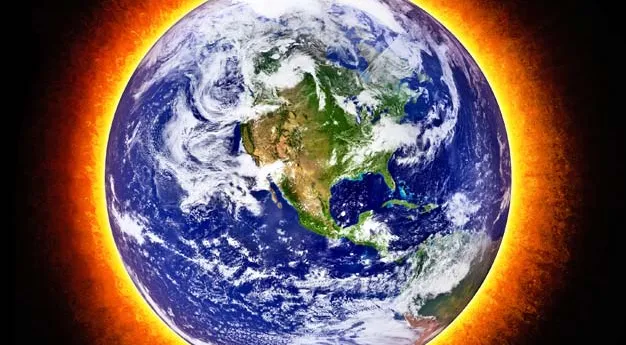The UN’s World Meteorological Organization (WMO) has reported that the abundance of climate-heating gases in the atmosphere reached record highs in 2022.
In its report, the WMO said that “there is no end in sight to the rising trend”, which is largely driven by the burning of fossil fuels as the concentration of carbon dioxide, the main greenhouse gas, is now 50% higher than before the start of the Industrial Revolution.
The Earth has not experienced similar levels of CO2 for 3-5 million years, when the global temperature was 2-3C warmer and sea level was 10-20 metres higher than today, the WMO said in the report.
According to the report, published ahead of the UN’s Cop28 climate summit, which begins on 30 November, the concentrations of the two other key greenhouse gases, methane and nitrous oxide, also grew.
Greenhouse gas levels are expected to keep increasing until emissions are cut all the way down to net zero, meaning global heating and the impacts of extreme weather will also continue to increase.
Read also: Report warns health of billions at risk from global heating
However, countries are failing to deliver on almost every policy required to cut emissions, despite progress on renewable energy and electric cars, according to a report published on Tuesday. It said, for example, that coal must be phased out seven times faster than is happening to avoid the worst impacts of global heating.
“Despite decades of warnings from the scientific community, thousands of pages of reports and dozens of climate conferences, we are still heading in the wrong direction,” Prof Petteri Taalas, the WMO’s secretary-general was quoted as saying.
“The current level of greenhouse gas concentrations puts us on the pathway of an increase in temperatures well above the Paris agreement targets by 2100,” he said.
“This will be accompanied by more extreme weather [and] the socioeconomic and environmental costs will soar. We must reduce the consumption of fossil fuels as a matter of urgency.”
According to reports, the past year has seen temperatures described as “gobsmackingly bananas” by scientists shatter records, and intensifying extreme weather events take lives and livelihoods across the globe.
Story was adapted from the Guardian.
